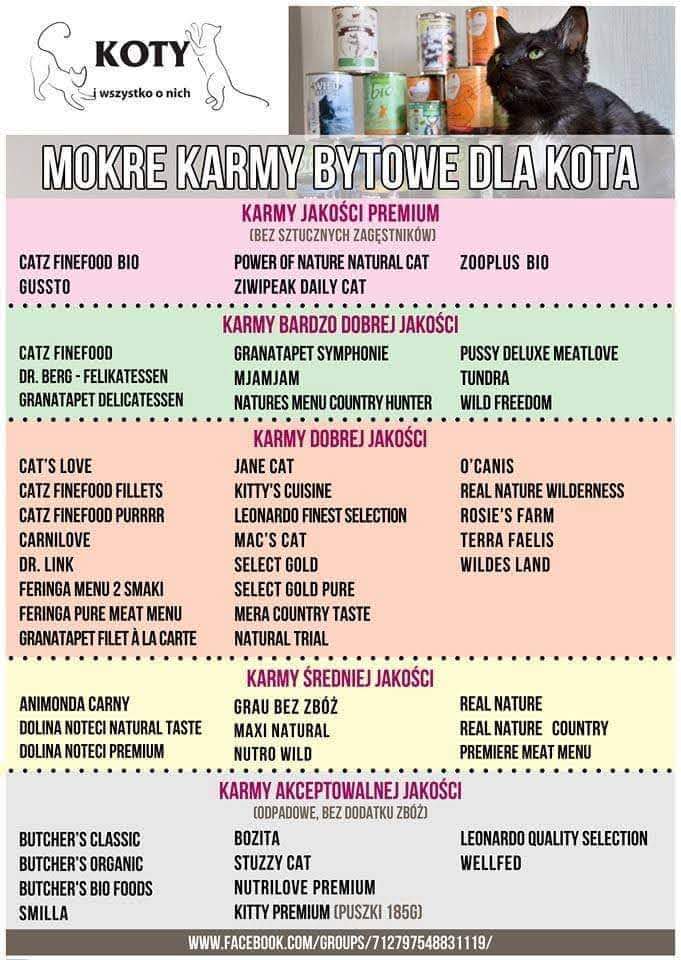What should I feed my cat?
To keep our kitten healthy, we should take special care of its diet.
A cat is not a waste chute – even if it sometimes behaves like one. We have to be resistant to cat’s begging. A begging look and pathetic mumbling while eating human food certainly doesn’t mean that the cat is hungry. Once you share a treat with him, you won’t be able to get away from the furry beggar.
Cats should eat special cat food of good quality.
It can be crisps, supplemented with raw or cooked meat (raw meat should be frozen). They can be cans with high meat content – market ones contain only 3-4% of meat, in pet stores you can buy ones with 80-99%.
We can supplement the diet with: egg yolk, cottage cheese, natural jugurt.
Never give your cat such products as:
milk – in all the movies and cartoons domestic cats are fond of flogging milk. Cats are not equipped by nature with the proper enzyme to break down lactose (the sugar contained in milk). Undigested lactose ferments in the intestines causing diarrhea. Although some cats can tolerate small amounts of milk, it makes no sense to give it to them. Cats should drink water, necessarily fresh. If you insist on milk, buy one without lactose,
dog’s food – in a house full of animals it’s hard to keep track of which pet eats which food. It’s worth to see to it that a gluttonous cat doesn’t eat dog’s food. A cat that feeds on dog’s food is exposed to serious heart diseases and other illnesses. Why? Cat food contains all the ingredients cats need, including an amino acid called taurine, which is not found in dog food. Cat food and dog food differ in vitamin content (different form of vitamin A) and the presence of arachidonic acid needed by cats but not needed by dogs. Cat food contains the necessary amount of proteins and fats for cats, in dog food there are too many carbohydrates.
Onions – raw onions are extremely disgusting to cats, so there is no danger that they will steal a piece and eat it secretly. However, many human meals contain fried or cooked onions. A very bad habit of sharing a meal-or letting your cat lick your plate-can end up making your cat sick. Onions cause anemia in the cat and if present in the daily diet can be dangerous for the pet.
Liver – slightly cooked, once in a while – should not hurt and is even beneficial. But given every day, threatens the cat with vitamin A poisoning. Besides, raw liver can cause diarrhea and too cooked liver can cause constipation.
Bones – cats are not dogs, they are not crazy about bones. Giving your cat meat with bones, especially poultry, may have a tragic end. Poultry bones are very brittle and if eaten by a cat may puncture its stomach.
Chicken protein – yolk is advisable once in a while (1-2 times a week), but protein can cause a deficiency in the vitamin biotin (vit. B7). The protein contains avidin, an enzyme that causes biotin not to be absorbed by the body. Biotin deficiency causes hair loss, stunted growth, and skin problems in cats.
Also unhealthy for cats are:
chocolate
Coffee and coffee beans
drinks containing caffeine
garlic
raw or smoked fish
fatty sauces
alcohol
mushrooms
yeast dough
leaves and stems
potatoes, tomatoes, rhubarb
moldy and spoiled food.
We highly recommend the foods below:

